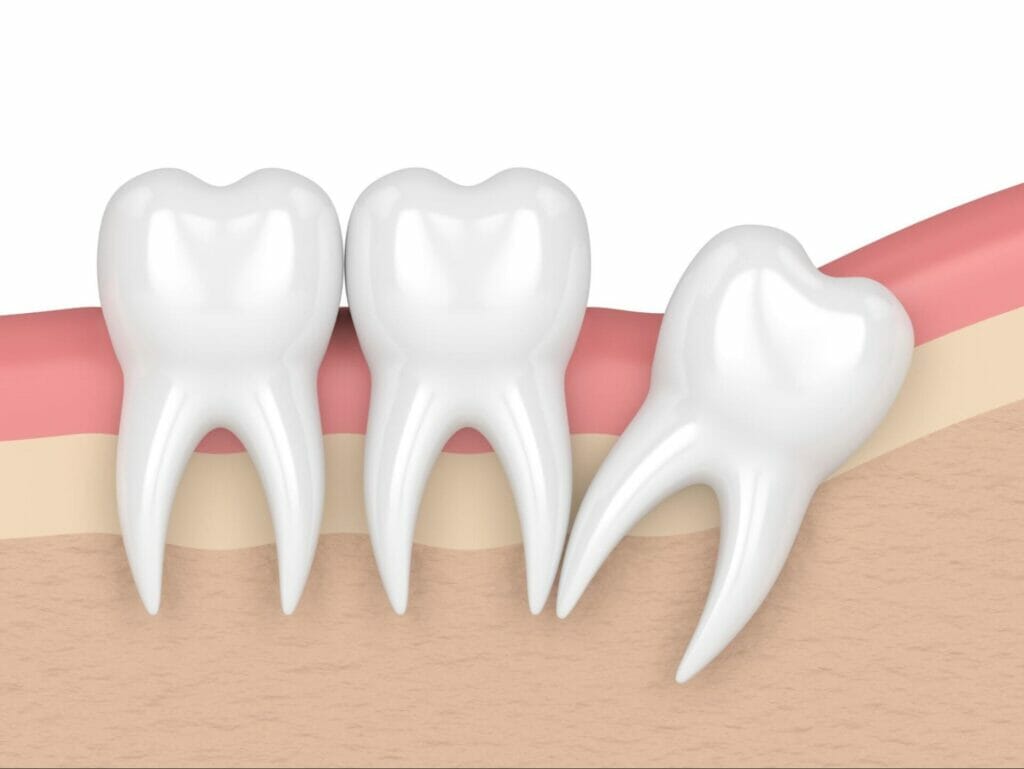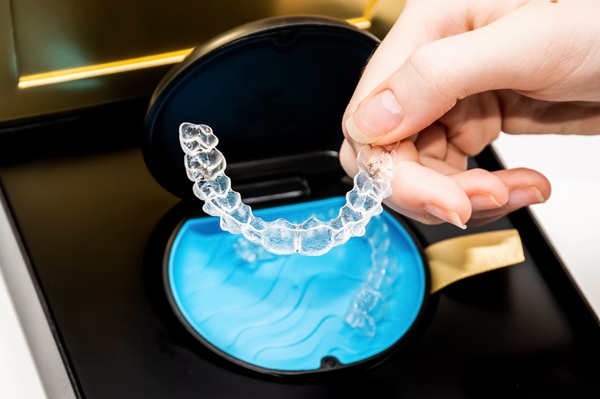Do you remember the stories you heard as a child about wisdom teeth extraction? Tales of excruciating pain, lengthy recoveries, and horror stories that have left you dreading the day you’d have to face the dental chair. Well, it’s time to confront those myths head-on and uncover the facts that lie beneath the surface. So get ready to rewrite the narrative surrounding wisdom teeth removal and gain a fresh perspective on this dental procedure.
What are Wisdom Teeth?
Wisdom teeth or the third molars, are the last set of permanent teeth to emerge in the back corners of the mouth. They typically erupt between the ages of 17 and 25, hence the term “wisdom teeth”, as they appear during adulthood when a person is presumed to be wiser.
Most individuals have four wisdom teeth, with one located in each quadrant of the mouth (upper left, upper right, lower left, and lower right). However, it’s not uncommon for some people to have fewer or even no wisdom teeth at all.
While wisdom teeth served a purpose in our ancestors’ diets, modern humans often have smaller jaws, leaving insufficient space for these additional molars to fully erupt and function properly. This lack of space can lead to various issues, prompting the need for wisdom teeth extraction.
When are Wisdom Teeth Extractions Necessary?

When wisdom teeth do not have enough space to fully erupt or grow in the correct alignment, they can become impacted. Impacted wisdom teeth can cause pain, infections, damage to surrounding teeth, and other oral health issues. In such cases, extraction is often recommended to prevent further complications. Sometimes, an impacted wisdom tooth may not cause immediate problems, but has the potential to escalate into problematic conditions, necessitating its removal.
Some common scenarios in which extractions may be recommended include:
- Crowding and Shifting of Teeth: The eruption of wisdom teeth can exert pressure on existing teeth, causing crowding and shifting of the dental arch. This can lead to misalignment and affect the bite, potentially requiring orthodontic treatment. Removing wisdom teeth can help prevent these orthodontic issues.
- Infections and Gum Disease: Wisdom teeth that are partially erupted can create an opening for bacteria to enter the gums, leading to infection and gum disease. Infections can cause pain, swelling, difficulty opening the mouth, and bad breath. Extraction may be recommended to eliminate the source of infection and prevent its recurrence.
- Cysts and Tumours: In some cases, an impacted wisdom tooth can also develop cysts or tumours, which can cause damage to the jawbone, surrounding teeth, and nerves. Removal of the affected wisdom teeth is necessary to address these abnormal growths and prevent further complications.
- Dental Restorations or Procedures: If you are planning to undergo extensive dental restorations or orthodontic treatment, the presence of wisdom teeth can interfere with these procedures. Extracting wisdom teeth before initiating dental work can ensure a smoother treatment outcome.
It’s important to note that not all individuals will require wisdom teeth extraction. Regular dental check-ups and consultations with your dentist will help assess the need for extraction based on your unique dental and oral health circumstances. It’s always recommended to follow the advice of your dental care provider to make informed decisions regarding your wisdom teeth.
Debunking 5 Myths About Wisdom Teeth Extraction
After understanding the basics of what wisdom teeth are and when they can become impacted, it’s essential to address some common misconceptions surrounding wisdom teeth extraction. These myths can contribute to anxiety and unnecessary fears about the procedure. By debunking these wisdom teeth myths with factual evidence, you will have a clearer and more accurate picture of what wisdom teeth extraction entails.
Myth 1: Everyone Has Wisdom Teeth
It’s a common misconception that everyone develops wisdom teeth. In reality, not all individuals will have wisdom teeth that fully emerge or even develop at all. Some people have wisdom teeth that remain underneath the gums, never erupting into the oral cavity. Others may have one or two wisdom teeth that emerge, while some individuals may not have any wisdom teeth at all. These variations are entirely acceptable unless problems or complications arise. Therefore, it is essential to rely on dental practitioners who can accurately determine the presence, position, and condition of wisdom teeth through the use of X-rays and thorough examinations. This allows for an informed assessment of whether extraction is necessary or if monitoring is sufficient for individuals without fully developed or non-existent wisdom teeth.
Myth 2: You Know If You Have Wisdom Teeth
While some individuals may experience noticeable symptoms or discomfort when their wisdom teeth emerge, others may have no apparent signs. Wisdom teeth can remain impacted or partially erupt without causing immediate pain or noticeable effects. As such, regular dental check-ups and X-rays are necessary to accurately determine the presence and condition of wisdom teeth. Relying solely on symptoms can be misleading, highlighting the importance of thorough oral evaluations.
Myth 3: Wisdom Teeth Have No Purpose
Another common myth about wisdom teeth is that they are useless. But in reality, wisdom teeth served a purpose in our ancestors’ diets, as they had larger jaws and needed the extra molars for chewing tough and coarse foods. However, with the evolution of our diet and jaw structure, wisdom teeth have become less necessary. Due to the reduced space in modern jaws, wisdom teeth often don’t have enough room to emerge properly, leading to potential complications. Therefore, the functional purpose of wisdom teeth has diminished greatly, and their extraction is often recommended to avoid oral health issues.
Myth 4: Everyone Needs To Have Their Wisdom Teeth Removed
Wisdom teeth extraction is not a blanket recommendation for everyone. While many individuals may experience problems such as impaction, infections, or crowding caused by their wisdom teeth, some individuals may have enough space in their jaws to accommodate the eruption and alignment of these teeth without complications. Each person’s dental situation is unique, and a personalised evaluation by a dentist is essential to determine whether wisdom teeth removal is necessary or not.
Myth 5: Extracting Wisdom Teeth Is Dangerous
Wisdom teeth extraction is a common and well-established dental procedure performed by dentists or oral surgeons. While every surgical procedure carries some inherent risks, wisdom teeth removal is typically safe and routine when performed under proper conditions. Modern advancements in anaesthesia, techniques, and post-operative care have significantly reduced the risks associated with the procedure, making wisdom teeth extraction a safe solution for addressing impacted or problematic teeth.
Should You Have Your Wisdom Teeth Removed?
Deciding whether to have your wisdom teeth removed is a crucial decision that should be based on a thorough evaluation by your dentist. One determining factor is the presence of impaction, where the wisdom teeth are unable to fully erupt or remain trapped beneath the gums. Impacted wisdom teeth can lead to a range of complications, including infections, cysts, and damage to surrounding teeth. Another consideration is the potential impact on your oral health. If the wisdom teeth are causing overcrowding, misalignment, or difficulty in maintaining proper oral hygiene, extraction may be recommended.
In addition, individual factors such as your age, dental history, and future dental treatment plans can influence the decision. At Bellevue Hill Dental, our friendly and compassionate dentists will assess these factors and provide personalised advice on whether wisdom teeth removal is necessary in your case, ensuring optimal oral health outcomes and a healthy smile for life.
Wisdom Teeth Extraction Procedure
The wisdom teeth extraction procedure typically involves the following steps:
- Evaluation: Your dentist will conduct a thorough examination, which may include X-rays or other imaging techniques, to assess the position, size, and condition of your wisdom teeth. This evaluation helps determine the appropriate treatment approach.
- Anaesthesia: Before the procedure begins, local anaesthesia, sedation, or general anaesthesia may be administered to ensure your comfort and minimise any potential pain or discomfort during the extraction. In addition to other anaesthesia options, Bellevue Hill Dental also offers twilight sedation (also known as conscious sedation) to help you relax and minimise any discomfort or anxiety during the procedure. This sedation method allows you to remain conscious but in a deeply relaxed state.
- Incision and Access: If the wisdom tooth has fully erupted, a small incision may be made in the gum tissue to expose the tooth and provide access for extraction. In the case of impacted wisdom teeth, a small portion of bone may also be removed to access the tooth.
- Extraction: The wisdom tooth is carefully loosened and removed from its socket. In some cases, it may be necessary to divide the tooth into smaller pieces for easier extraction.
- Closure: After the wisdom tooth is removed, the extraction site is thoroughly cleaned to remove any debris. Stitches may be placed to help close the incision, which may be either dissolvable or require a separate appointment for removal.
- Recovery: Following the procedure, you will be given instructions on post-operative care, including pain management, swelling reduction techniques, oral hygiene practices, and dietary restrictions. It’s important to follow these instructions closely to promote proper healing.
The specifics of the procedure may vary depending on the complexity of the case, the number of wisdom teeth being extracted, and your individual needs. Your dentist will provide detailed guidance and address any concerns you may have to ensure a smooth and successful wisdom teeth extraction process.
Experience Gentle Wisdom Teeth Extraction at Bellevue Hill Dental
Debunking the myths surrounding wisdom teeth extraction and understanding the facts can help you make informed decisions about your oral health. Rest assured, advancements in anaesthesia, sedation, and surgical techniques have made the procedure more comfortable and gentle than ever before.
If you’re facing the prospect of wisdom teeth extraction, we encourage you to book a consultation with us. Our dentists will explain the procedure in detail, address any concerns you may have, and develop a personalised treatment plan that prioritises your well-being. Our compassionate team is here to support you every step of the way, ensuring that your wisdom teeth extraction is a smooth and positive experience.



